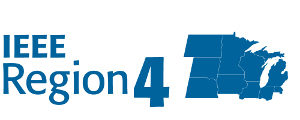[] Quadratic Unconstrained Binary Optimizing (QUBO) is a combinatorial optimization problem that has become essential to machine learning, economics, and healthcare applications. Therefore, QUBO solvers have seen a significant boost in their demand. These problems are computationally expensive, complex to parallelize, and require MIMD approaches. Ising machines such as D-wave have proposed a quantum solution for solving these NP-hard optimization problems. Several data-dominant application spaces, namely protein folding problems in Computational Biology, genome sequencing for COVID-19 and other pandemic diseases, and traffic patterns in social media, have benefitted from this problem mapping and one-shot solution. Although they can solve QUBO problems, the exceptionally high operating cost due to the cryo-cooling for quantum Ising machines might not justify the accuracy they achieve. In this talk, we will explore a magnetic QUBO-solver, which could solve the problems more quickly and cost-effectively at room temperature. Because the Hamiltonian of a system of coupled nanomagnets is quadratic, a wide class of quadratic energy minimization can be solved much more quickly by the relaxation of a grid of nanomagnets than by a conventional Boolean processor. Our research shows that magnet-based solutions are independent of problem size as the ground state of the magnets yield the optimization solution in parallel. This co-processor consists of a programmable grid of magnetic cells that can generate any magnetic layout in a 2D plane and will be integrated with peripheral control similar to STT-MRAM memory. This talk will focus on state-variable design, problem mapping and reconfigurability. Co-sponsored by: Gordon Burkhead Speaker(s): Sanjukta Bhanja, Agenda: 6:00 PM - Start of online/virtual event. Local chapter and Section updates, introductions, etc. 6:05 PM - Start of Distinguished Lecture 6:55 PM - Formal End of Lecture, Start of Q&A - Discussions 7:15 PM - Formal end of event, Vote of thanks to the Speaker.... Virtual: https://events.vtools.ieee.org/m/417892

